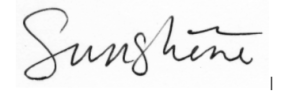It’s impossible to overlook the, effects of the pandemic on our lives. COVID-19 has affected all of us in one way or another. Even those lucky enough to avoid the virus personally so far have lost loved ones, had to navigate the extra complications of work and childcare, or experienced other impacts. From my Metcalf Institute perspective, the pandemic has offered countless lessons in how to–and how not to–do science communication.
We’ve seen the ways that mixed messages can hinder needed public health behaviors. We’ve seen how status-quo approaches to science communication can perpetuate and even fortify social inequities based on race, ability, gender, and class.
We’ve also seen how innovative communication approaches can be used to engage different audiences via social media platforms like TikTok and Instagram (see, for example, the fun, engaging, and informative work of the @scientist.on.skates Instagram account, created by one of our collaborators). We’ve seen some incredible journalism that exemplifies the accurate, contextual reporting needed to make decisions in times of uncertainty (the work of journalist Apoorva Mandavilli, a speaker in our 2020 COVID-19 in Context webinar series on the pandemic, immediately comes to mind).
So, you might ask, how do these lessons apply to Metcalf Institute’s mission of advancing informed, inclusive conversations about environmental issues?
- Our shared experience of this global catastrophe has shown the critical value of effective communication. As we all witness and experience the climate crisis through increasingly frequent and devastating environmental disasters, more and more of us recognize the need for action and support policies to address the climate crisis. Changing policies, however, is a slow and arduous business. We need consistent, compelling reporting and communication to drive change and correct misinformation. This is the work of Metcalf Institute.
- Our commitment to and leadership around inclusive science communication will remain central to our mission. Issues of justice are at the heart of environmental communication. We must acknowledge that the intimate connections among humanity and nature and the daunting scale of environmental challenges require the insights, expertise, and experiences of people from all walks of life to identify and achieve equitable solutions. Metcalf Institute will continue to help journalists, researchers, and other science communicators apply the traits of inclusive science communication through our Inclusive SciComm Symposium, resources like the Inclusive Science Communication Starter Kit, and novel programs designed to shift the status quo of science communication training.
- Necessity is the mother of invention…and expansion! Early in 2020, we shifted to virtual platforms to maintain continuous programming and held 22 programs for public audiences, 19 training programs, and a three-day, online international symposium through the end of 2021. We organized our first-ever virtual conference, expanded on our Zoom model for the Annual Science Immersion Workshop for Journalists, and produced a variety of interactive workshops for our Career Development Program trainees. Our online programs have yielded two distinct advantages: they expand access to our programs and broaden collaborations with partners and presenters. The continued demand for Metcalf programs demonstrates that we’re succeeding.
We have big plans to enhance Metcalf’s impact in the next few years including more training, webinars and resources by scaling up our capacity. For starters, we are thrilled to welcome Nina Gregory as the first person to serve as a full-time development professional dedicated exclusively to Metcalf fundraising. She joins us under the auspices of the Impact Accelerator Fund, and will be catalyzing this unique opportunity to invest in Metcalf’s sustainable organizational growth.
Metcalf Institute’s ability to advance informed, inclusive public conversations about environmental challenges and solutions has never looked brighter. As we begin this exciting phase of growth, I look forward to connecting with you online and in person. Thank you for being a partner in our shared mission.
Wishing you good health,

